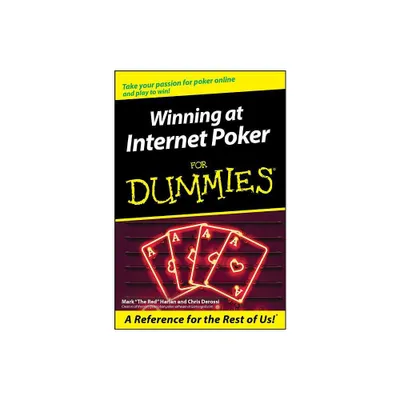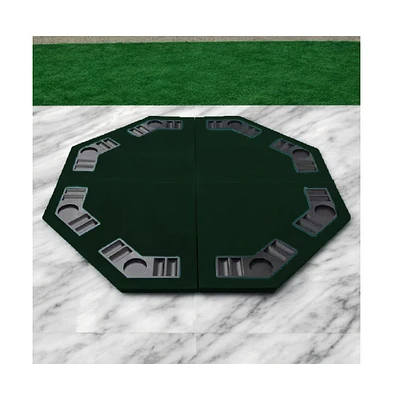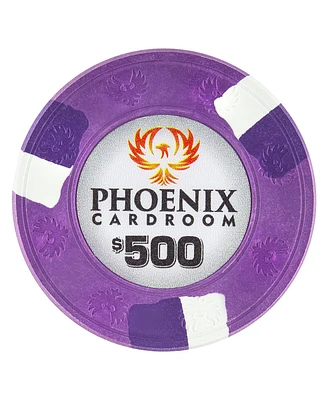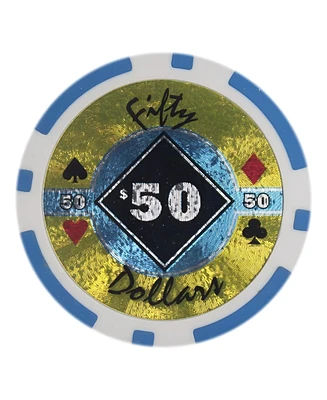Home
Poker For Dummies
Loading Inventory...
Barnes and Noble
Poker For Dummies
Current price: $19.99


Barnes and Noble
Poker For Dummies
Current price: $19.99
Loading Inventory...
Size: Paperback
*Product Information may vary - to confirm product availability, pricing, and additional information please contact Barnes and Noble
Know when to hold 'em, know when to fold 'em
Poker is America’s national card game, and its popularity continues to grow. Nationwide, you can find a game in progress everywhere. If you want to play, you can find poker games on replicas of 19th century riverboats or on Native American tribal lands. You can play poker at home with the family or online with opponents from around the world. Like bowling and billiards before it, poker has moved out from under the seedier side of its roots and is flowering in the sunshine.
Maybe you’ve never played poker before and you don’t even know what a full house is.
Poker For Dummies
covers the basics. Or perhaps you've played for years, but you just don’t know how to win. This handy guide will help you walk away from the poker table with winnings, not lint, in your pockets. If you’re a poker expert, you still can benefit – some of the suggestions may surprise you, and you can certainly learn from the anecdotes from professional players like T.J. Cloutier and Stu Unger.
Know what it takes to start winning hand after hand by exploring strategy; getting to know antes and betting structure; knowing your opponents, and understanding the odds.
also covers the following topics and more:
Poker games such as Seven-Card Stud, Omaha, and Texas Hold'em
Setting up a game at home
Playing in a casino: Do's and don'ts
Improving your play with Internet and video poker
Deciphering poker sayings and slang
Ten ways to read your opponent's body language
Playing in poker tournaments
Money management and recordkeeping
Knowing when and how to bluff
Poker looks like such a simple game. Anyone, it seems, can play it well – but that's far from the truth. Learning the rules can be quick work, but becoming a winning player takes considerably longer. Still, anyone willing to make the effort can become a good player. You can succeed in poker the way you succeed in life: by facing it squarely, getting up earlier than the next person, and working harder and smarter than the competition.
Foreword by Chris Moneymaker, 2003 World Series of Poker Champion.
Poker is America’s national card game, and its popularity continues to grow. Nationwide, you can find a game in progress everywhere. If you want to play, you can find poker games on replicas of 19th century riverboats or on Native American tribal lands. You can play poker at home with the family or online with opponents from around the world. Like bowling and billiards before it, poker has moved out from under the seedier side of its roots and is flowering in the sunshine.
Maybe you’ve never played poker before and you don’t even know what a full house is.
Poker For Dummies
covers the basics. Or perhaps you've played for years, but you just don’t know how to win. This handy guide will help you walk away from the poker table with winnings, not lint, in your pockets. If you’re a poker expert, you still can benefit – some of the suggestions may surprise you, and you can certainly learn from the anecdotes from professional players like T.J. Cloutier and Stu Unger.
Know what it takes to start winning hand after hand by exploring strategy; getting to know antes and betting structure; knowing your opponents, and understanding the odds.
also covers the following topics and more:
Poker games such as Seven-Card Stud, Omaha, and Texas Hold'em
Setting up a game at home
Playing in a casino: Do's and don'ts
Improving your play with Internet and video poker
Deciphering poker sayings and slang
Ten ways to read your opponent's body language
Playing in poker tournaments
Money management and recordkeeping
Knowing when and how to bluff
Poker looks like such a simple game. Anyone, it seems, can play it well – but that's far from the truth. Learning the rules can be quick work, but becoming a winning player takes considerably longer. Still, anyone willing to make the effort can become a good player. You can succeed in poker the way you succeed in life: by facing it squarely, getting up earlier than the next person, and working harder and smarter than the competition.
Foreword by Chris Moneymaker, 2003 World Series of Poker Champion.


















